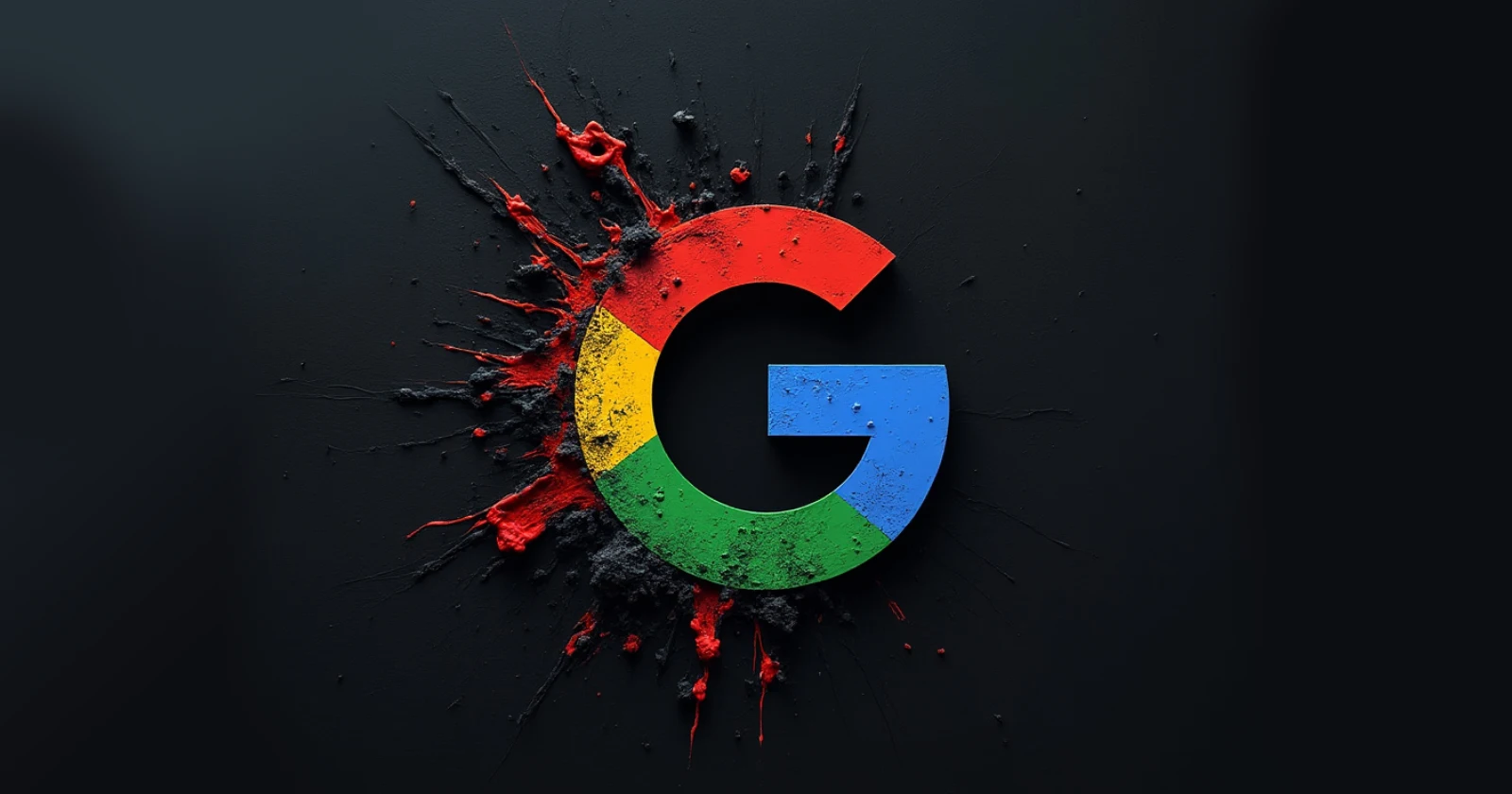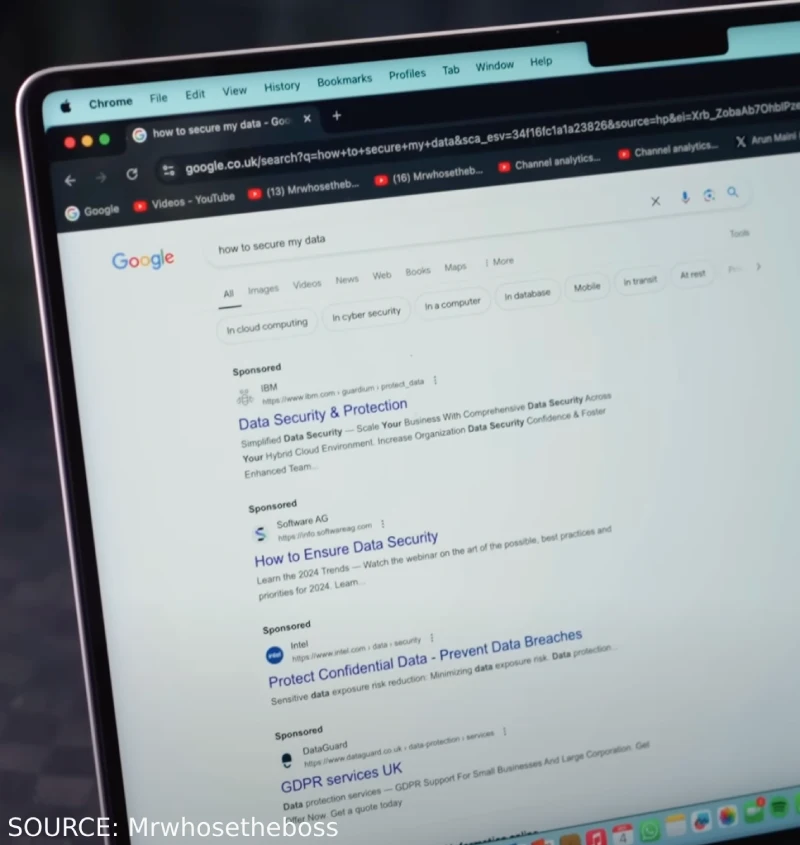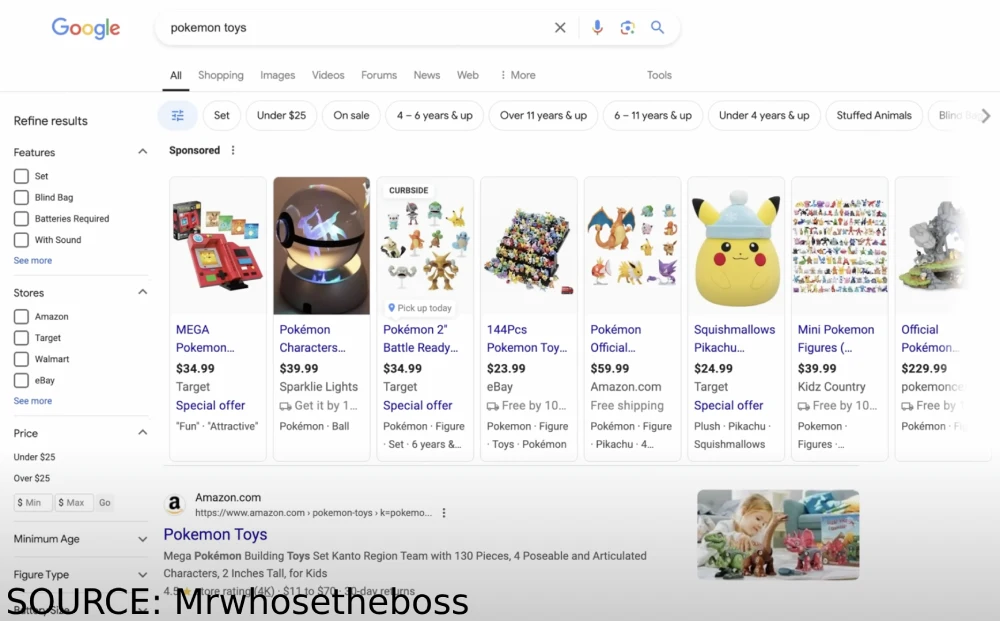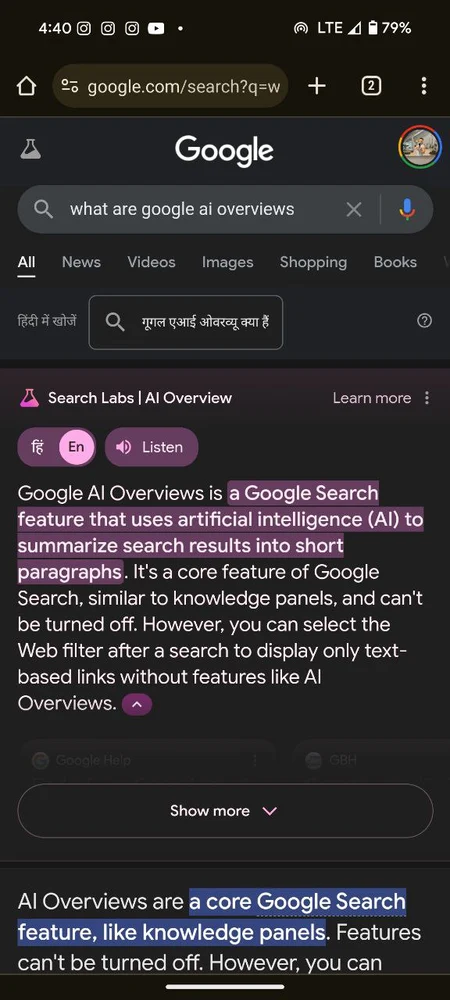Google Search, once hailed as the internet’s gateway to knowledge, has now fallen from grace, with users and creators alike criticizing the platform for prioritizing profits over quality. From algorithm updates that kill small websites to search results filled with ads, the cracks in Google’s search empire are becoming increasingly visible. Many, including prominent tech influencers like Mrwhosetheboss, argue that Google’s search is “borderline broken,” leading some people to question whether the search giant has lost its way.
In this article, we’ll explore the issues plaguing Google Search and the backlash it faces, drawing insights from creators, publishers, and users who feel left behind by the platform’s new direction.
A flood of ads disguised as results
One of the most glaring criticisms is how Google’s search results have evolved to feature more advertisements than organic content. Mrwhosetheboss points out that “the entire fold (the view before scrolling down) is just sponsored content,” with ads now blending seamlessly into regular search results. “The sponsored search results look exactly like the real ones,” he explains, hinting that Google is quietly messing with the user experience.
This change has left users frustrated. A typical query now demands scrolling past several layers of paid content before reaching any organic results — if you get that far at all. It’s a far cry from Google’s original mission of making the world’s information accessible, and it’s starting to “feel like Google’s gotten too comfortable,” as Mrwhosetheboss bluntly puts it.
Shopping-related searches, in particular, highlight this issue. Google’s algorithm often serves product ads upfront, relegating organic search results to obscurity. As Mrwhosetheboss sarcastically remarks, “It really feels like with shopping, Google is specifically making the organic search results bad just to drive clicks to ads.”
Google’s business model: pay to play?
The main issue is Google’s ad-centric business model. In the past, search results were driven by relevance and quality content. However, today, it seems that Google Search is influenced by who can pay the most. Mrwhosetheboss explains that Google doesn’t make more money if you find the perfect product. Instead, the platform encourages businesses to buy ads.
This “pay-to-play” sort of system creates a concerning situation. As long as a company pays for visibility, it can secure a top spot, regardless of product quality or legitimacy. Mrwhosetheboss warns that it appears that as long as a company pays, it doesn’t matter whether they’re a scam or not, they go right to the top. Many users have also raised concerns about seeing outright scams being promoted through Google’s ads. This means that Search users now have to think twice before blindly trusting Google to deliver legitimate results.
Algorithm updates destroying niche sites
Recent algorithm updates have also hurt smaller websites, making it increasingly difficult for them to survive. For example, RetroDodo, a niche gaming site, saw its organic traffic drop by 85% after Google’s September 2023 update. Its founder, Brandon Saltalamacchia, expressed his frustration, stating, “Google’s search results are no longer fair and no longer abide by their own guidelines.” Similarly, HouseFresh, a review site, lost 91% of its traffic after a core update in March 2024. Its founder acknowledged that “Google doesn’t owe us anything.”
Both cases highlight the increasing dominance of large companies and SEO powerhouses that produce mass content to capture search traffic. SEO, once a tool for optimizing useful content, has evolved into a ruthless industry where only those with deep pockets and aggressive strategies thrive. As Mrwhosetheboss puts it, “The only companies pumping out this much content and paying to boost visibility are the ones with a monetary incentive to do so.”
Smaller publishers feel like collateral damage in Google’s pursuit of ad revenue, and the frustration is clear. RetroDodo’s founder vows to “keep pushing forward,” but the odds are increasingly stacked against those who rely on organic traffic to stay afloat. Interestingly, in a recent interview, Sundar Pichai did acknowledge the situation with these two websites, but he simply mentioned, “at the end of the day, we’re trying to satisfy user expectations” and dismissed the argument basically saying it’s all anecdotal evidence.
The rise of AI Overviews
Google’s recent experiments with AI-generated summaries, known as “AI Overviews,” have further eroded trust in the platform. Initially, the feature made headlines for bizarre recommendations — like suggesting people eat rocks or use non-toxic glue to stick cheese to pizza. These blunders highlight a critical issue: Google’s AI isn’t always reliable.
Despite these early failures, Google is doubling down on AI by integrating ads directly into AI Overviews. According to The Verge, these ads appear under a “sponsored” header for queries with a commercial angle, adding yet another layer of paid content. While Google claims this helps users “quickly connect with relevant businesses,” many others argue it’s just another way to prioritize profit over relevance.
Another concern is how AI Overviews handle links to content. Reports suggest that sites affected by Google’s “Helpful Content Update” are often excluded from AI Overviews, even if they rank well in traditional search results. This selective filtering makes it harder for smaller sites to recover and reflects Google’s increasing control over which information gets visibility.
Our own member, Hillary Keverenge, had a strong opinion about Google’s push to get more eyeballs on its AI Overviews in the name of “helpful content,” by cheating independent publishers out of clicks, and in turn, the necessary finances to keep themselves afloat.
Best pals with Reddit
Ever since the HCU update in September last year, Google has been pushing Reddit in its search results left, right, and center. Call me a tinfoil hat-wearing conspiracy theorist, but to me, it just seems like a perfect move for Google to train its AI. How so? Well, if you missed it, early this year, Google announced that it’s partnering with Reddit for “helpful content.” This data-sharing agreement means Google will have an incredible amount of user-generated content to feed its AI models. The more interactions on Reddit, the more Google benefits.
While this might be a good move for users in certain situations, it’s not exactly “helpful” when you’re searching for a fix only for Google to bombard you with Reddit posts where all you see is “same here,” and “me too.” To combat this, some publishers are playing 3D chess with Google and have now started boosting their presence on Reddit.
Hijacking website traffic: The “Quick View” controversy
In addition to AI Overviews, Google is testing a new “Quick View” feature that lets users access recipe information directly on the search page without visiting the original site. While convenient for users, this feature has raised alarms among food bloggers and content creators.
SEO expert Tom Critchlow warned that Google is effectively “hijacking the site click,” depriving creators of the traffic they depend on for ad revenue. As one critic put it, “Google is stealing content and monetizing it without giving back.” If widely implemented, features like Quick View could devastate content-driven industries that rely on search traffic for survival.
Has Google lost its way?
The trajectory of Google Search eerily mirrors the decline of Yahoo, which lost relevance by prioritizing profit over user experience. Google’s early success came from offering a clean, user-focused experience that stood in stark contrast to Yahoo’s cluttered search results. But now, it seems Google has fallen into the same trap. It reminds me of the quote “You either die a hero, or you live long enough to see yourself become the villain” from The Dark Knight.
As Mrwhosetheboss aptly notes, “Google originally succeeded by prioritizing user experience over profit, unlike Yahoo.” However, today’s Google appears more interested in maximizing ad revenue, even at the cost of user satisfaction.
A search engine in crisis
Google Search is no longer the reliable tool it once was. Between excessive ads, algorithm changes that crush small websites, unreliable AI overviews, and content hijacking experiments, the platform has alienated users and creators alike. While Google remains dominant, its recent moves suggest that it’s more interested in serving advertisers than meeting the needs of its users.
If the backlash continues, users may start exploring alternatives or Google might be forced to recalibrate its approach. After all, even giants like Yahoo fell from grace. And as history shows, no platform is too big to fail. Unless it course-corrects, it may face a future where trust and relevance slip further from its grasp. All this adds to the growing concern of Google having to sell off parts of its operations due to an ongoing case against it. So Google, the ball’s in your park now. It’s time to act or face the consequences.
TechIssuesToday primarily focuses on publishing 'breaking' or 'exclusive' tech news. This means, we are usually the first news website on the whole Internet to highlight the topics we cover daily. So far, our stories have been picked up by many mainstream technology publications like The Verge, Macrumors, Forbes, etc. To know more, head here.





